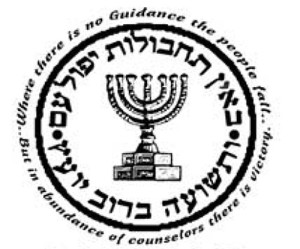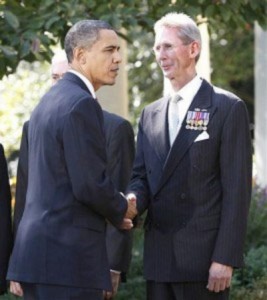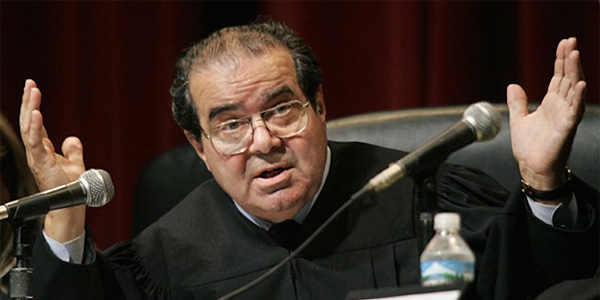It started with a simple comment on Facebook. Normally, I try to avoid the comments on certain types of controversial posts or stories (i.e., anything that has to do with refugees or ABC’s “Scandal” spoilers—you people always ruin it for me!) because I know that the likelihood of someone saying something foolish is high. Even when I do venture a glance, I never really engage or reply for a couple of reasons. First, I may be completely ignorant of the topic at hand, and I am the first to admit when I am not up to speed on something.
Second, if the comment is especially ignorant (I am talking grossly misinformed, hateful, racist, etc.), my first instinct is to track the poster down at their home and, as my grandfather used to say, “lay a beatin’ on ‘em.” I’m then forced to count to 10, have a sip of soul-soothing chai tea, and continue to gaze out at the vast Tibetan steppes and ponder the true meaning of life.
But recently, someone posted a comment that stuck with me. It was a simple one that dealt with the recent death of 30-year Supreme Court Justice Antonin Scalia. It read (verbatim):
They found Scalia with a pillow over his head and a needle mark in his leg. Give me a break—the pillow was used to keep him quiet while they shot him with a heart-attack venom. The man was murdered, no question, and all fingers point to this administration.
Again, count to 10, drink my tea. But as implausible as it is to me (and I will explain my reasoning why, later) it also stuck with me because of the significance of the alleged act and the recent anniversary of another one along quite similar lines.
In 1997, the government of Israel sanctioned the assassination of Hamas leader Khaled Mashaal. Mashaal had been living in Jordan since 1991, and became Hamas’s chairman in 1996. Under orders from Prime Minister Benjamin Netanyahu, Israel’s national intelligence agency, Mossad (the Institute for Intelligence and Special Operations), formulated a plan to carry out the hit. The attack was to serve as retaliation for the bombing of the Mahane Yehuda Market, which killed 16 civilians (including the two suicide bombers) and injured 178. Mashaal, at the time the chief of the group’s Jordanian branch, was seen as viable target. Israel alleged that King Hussein of Jordan had been ignoring its requests to expel Hamas operatives from his country, instead assuring them that it was better to keep them where they could be closely observed by his Mukhabarat intelligence services, so Netanyahu decided to act independently.
Because Israel and Jordan had only made formal peace three years earlier, it was agreed that any operation conducted inside Jordan would have to dispense with the traditional “Hellfire missile in your face” tactics that struck fear into the heart of their enemies, instead using something more quiet and deniable. The team would consist of six agents, two to make the hit and the remaining four in support roles. At least two flew into the capital of Amman on Canadian passports. In a later interview with BBC News, Mishka Ben David, one of the Mossad agents relegated to a support role, recalled that the strike team followed their target for days, but it was not until September 25 that an opportunity presented itself to execute.
In theory, the plan was simple. Isolate Mashaal from his security detail, and then inject him with a chemically modified toxin called levofentanyl, which would simulate a heart attack. In the ensuing chaos, the Mossad agents would slip away, and Mashaal’s death would remain a deniable operation. To this point, Israel had been largely successful in bringing the fight to those she deemed terrorists or those who supported them. Mossad was (and is) one of the world’s leading intelligence services, but today, fortune was not on their side. What followed would almost be comical if there was not so much at stake.
The approach to Mashaal seemed to go smoothly. As they had observed in their early recon, he left his building more or less at the same time every day, escorted by his security detail to his waiting vehicle. But this day was different. According to Ben David, as the team made its approach to Mashaal, he was followed out of the elevator by his then young daughter. The new dynamic rattled the men, and their on-the-fly adjustment caught the attention (unnoticed by them) of their target’s waiting chauffeur.
As one of the Mossad agents raised the toxin delivery system (I am assuming that it was a syringe, but have not been able to confirm, which may be a good thing) the chauffeur shouted and actually swung at the agent with a newspaper that he was carrying. Distracted by the alarm and move, the agent was still able to inject Mashaal in his left ear.
Alerted by the commotion, one of the security team chased the now-fleeing Mossad agents, who jumped into a waiting escape vehicle manned by a third agent. Here is where a lapse in judgment cost them their freedom (temporarily) and could have cost them their lives. Erroneously believing that they had lost the pursuing security officer, the agents abandoned their vehicle and tried to flee on foot. In fact, the officer had alerted local law enforcement, and a plainclothes officer who recognized the would-be assassins from a radioed description was able to apprehend them and transport them to a local police department.
Already have an account? Sign In
Two ways to continue to read this article.
Subscribe
$1.99
every 4 weeks
- Unlimited access to all articles
- Support independent journalism
- Ad-free reading experience
Subscribe Now
Recurring Monthly. Cancel Anytime.
Long story short, the hit was a bust. Mashaal did end up hospitalized, in a coma and near death, but he would survive after Jordanian doctors recognized his symptoms as being consistent with opioid poisoning and administering the antidote. At the same time, as soon as he learned of the arrest of his agents, then-Mossad chief Danny Yatom flew to Jordan to meet with and explain the situation, as well as to deliver the now-unneeded antidote. Eventually, and in exchange for the release of a number of Hamas operatives and leaders, the six Mossad agents (four of whom had been able to make it to the Israeli embassy, and were now trapped) were able to fly home to Israel. The op would go down as one of the biggest intelligence failures in the nation’s history.
Back to Justice Scalia and the alleged hit. First off, please, let’s not get the idea that I am stating—officially or otherwise—that the U.S. government sanctions targeted killings. (Yes, I read the news and yes, I know about drones; I am just making it clear that I do not speak for or on behalf of the USG on this or any other subject.) I am not suggesting that the USG targets other USG officials. (You, with the sweat-stained Mork and Mindy T-shirt—I hear you screaming “JFK!” in the back. Please sit down.)
What I am saying (again, personal opinion) is this: If Justice Scalia’s death was the result of some dastardly scheme sanctioned by the Obama administration, then there needs to be some serious cloak and dagger 101 remedial instruction held. First, everyone who buys into these allegations is screaming that Scalia died while on the property of John Poindexter, allegedly a supporter of this administration and—how this is relevant I have no idea—that the president even once gave Poindexter a medal. So my first question is this: If I am trying to pull this off and distance myself from suspicion, why would I sanction (or conduct) the operation in a place that is sure to spark even the slightest connection?

Second, and I had not even heard this part until I read the Facebook comment that prompted the article, let’s look at the physical evidence left behind. Hollywood movies aside, I am willing to bet that unless you are the Mafia or the Triads and are trying to send a message, the people who would be trained to conduct an operation of this magnitude are not likely to leave behind a glaring neon sign—such as a pillow over the face and obvious track marks—that screams “This didn’t occur from natural causes!” Good Lord, I can’t even believe I am saying it. Yes, I hear you. “But what if they left all of that behind so that we will discount it as too implausible to be true?”
Let’s go back to basics here. This is (or allegedly would be) the targeted assassination, murder, of one of the most powerful officials in the government of the United States. Whatever you think of this administration (and oh, do I have some complaints), I would like to believe that whoever allegedly sanctioned this is smart enough to know that even a sloppy-looking hit is still a hit, and that any loose end has the chance to point back to them. If you believe otherwise—that they are really that dumb—then you might have to rethink that whole “calculating and cold” government thing. Let’s face it, in his last year in office, this president has been all about his legacy (sometimes at the cost of the opportunity to do some real good). I can’t see his people advising him to do anything that would so easily jeopardize his legacy for marginal political gain.
So to the gentleman who made the Facebook comment and inspired this article, thanks for being my muse, but I just can’t buy into this one. I try to be rational (unless it involves watching “Married at First Sight” with my wife—I draw the line there), so I will say that sure, anything is possible, but that doesn’t make it probable, likely, or true.
If someone has concrete evidence to the contrary, I am more than willing to consider it. But just know that to me, and this was solidified by my former profession, any talk to the effect of “I’ve heard that…” or “I am a forensic professional, and…” is not good enough. I have all the respect in the world for true experts in all professions, but in this case, if you were not there, I take it with a grain of salt. And if you say, “But InfoWars…” to me, I will completely shut down. I am the first to admit that I am not an expert in all of this, but I have my limits. There ya have it. I both cringe at the thought of and look forward to the comments and debate that this might spark. But please hurry: “Married at First Sight” is on in like 10 minutes. Save me….












COMMENTS